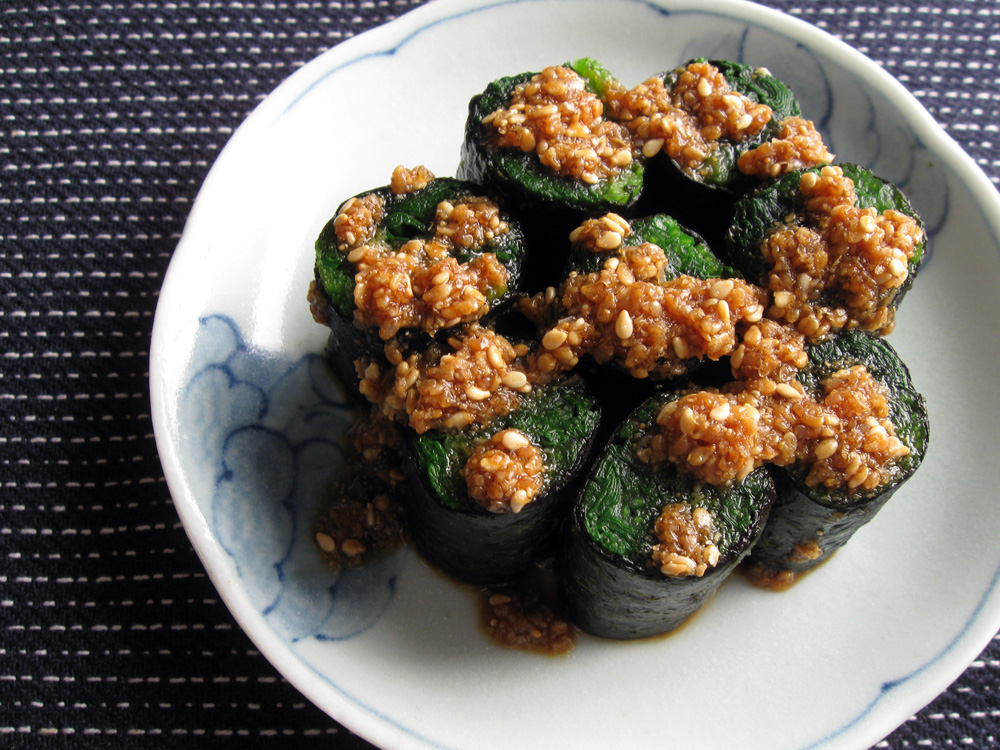
If you like ‘Goma-ae’ Spinach, you would wish to try this dish. Blanched Spinach is rolled with Nori (Seaweed Sheet) and served with the sweet ‘Goma-ae’ sesame sauce. You need no special tool to roll. It looks quite sophisticated. A perfect entree when you entertain friends and family. Makes 4 to 6 Servings Ingredients 1 …
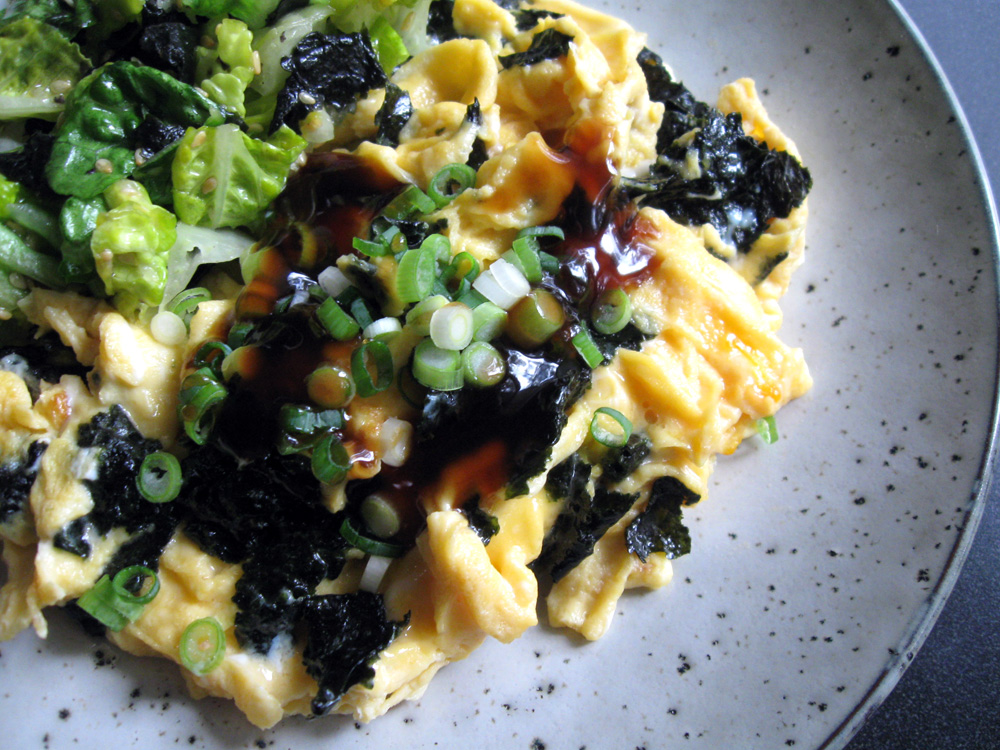
Scrambled Egg is easy to cook. If you add some other ingredients, it can be a great dish that is more nutritious. However, we can’t be bothered to wash and chop up veggies sometimes. Let me suggest you an easiest yet nutritious ingredient that you can add to your Scrambled Egg, and it is a …
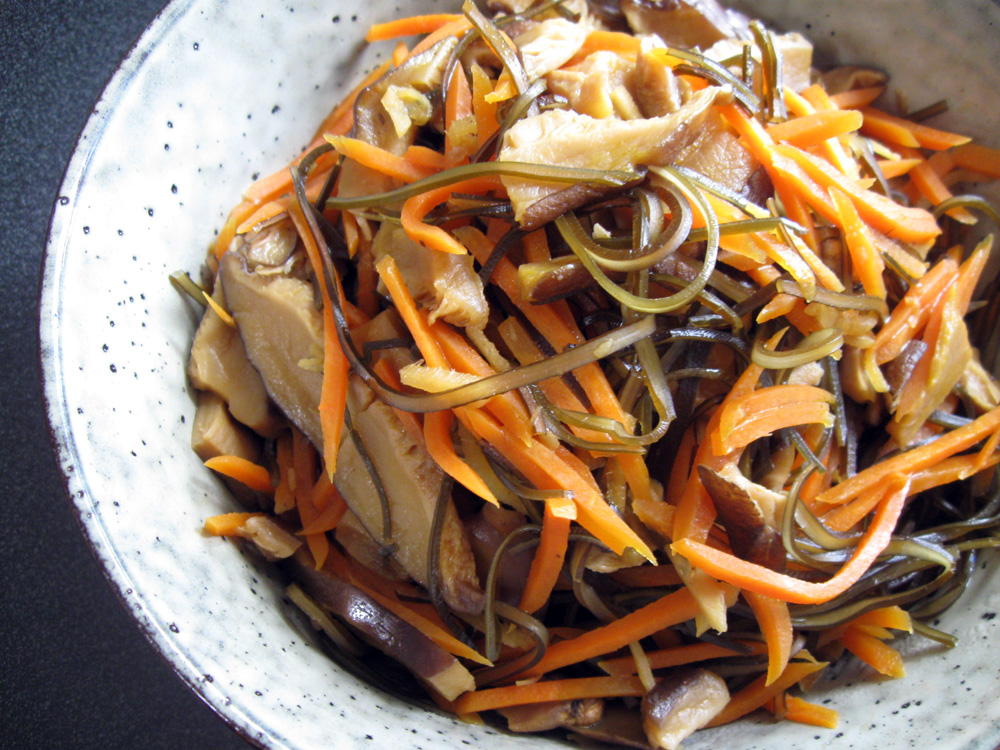
I didn’t enjoy this type of dish when I was a little girl. But now I am older, and I enjoy it a lot. It is gentle to stomach, nutritious and lower in calories. I would enjoy this dish with freshly cooked rice, tofu miso soup, and grilled fish or egg. That would be a …
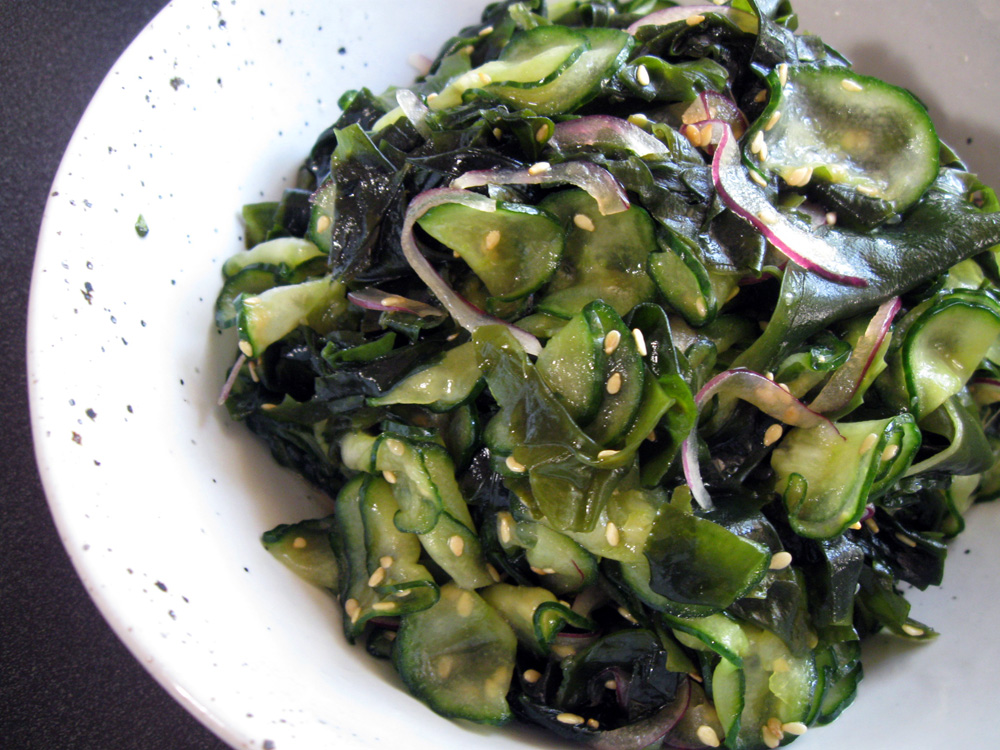
‘Wakame & Cucumber Salad’ is one of the most popular and authentic Japanese salads and I make it very often. But sometimes, it is good to change its flavour by adding extra ingredients. This one is slightly sweeter and sesame oil flavoured. Makes 4 Servings Ingredients 1 Continental Cucumber OR 2 smaller Cucumbers *about 300g1/4 …
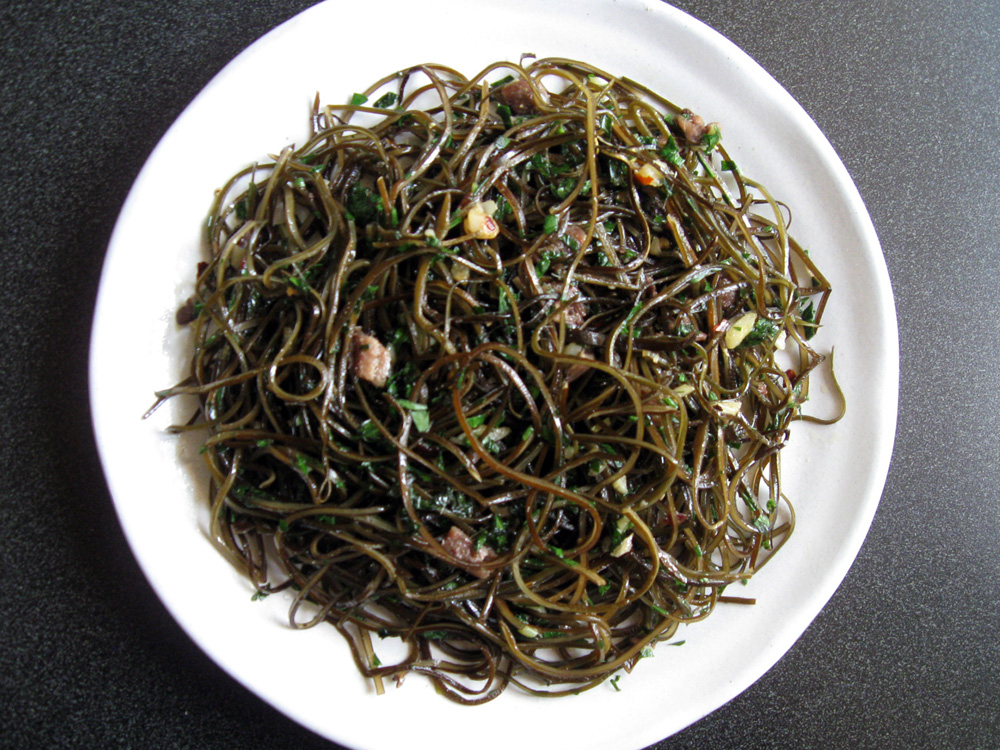
This is another sea vegetable dish that I want to encourage people who are not familiar with them to try. Have a look at the ingredients. Olive Oil, Garlic, Chilli and Anchovy!!! It’s very Mediterranean which many people love. ‘Kombu’ (Kelp) is very nutritious and has no fishy smell. This could be easier for you …
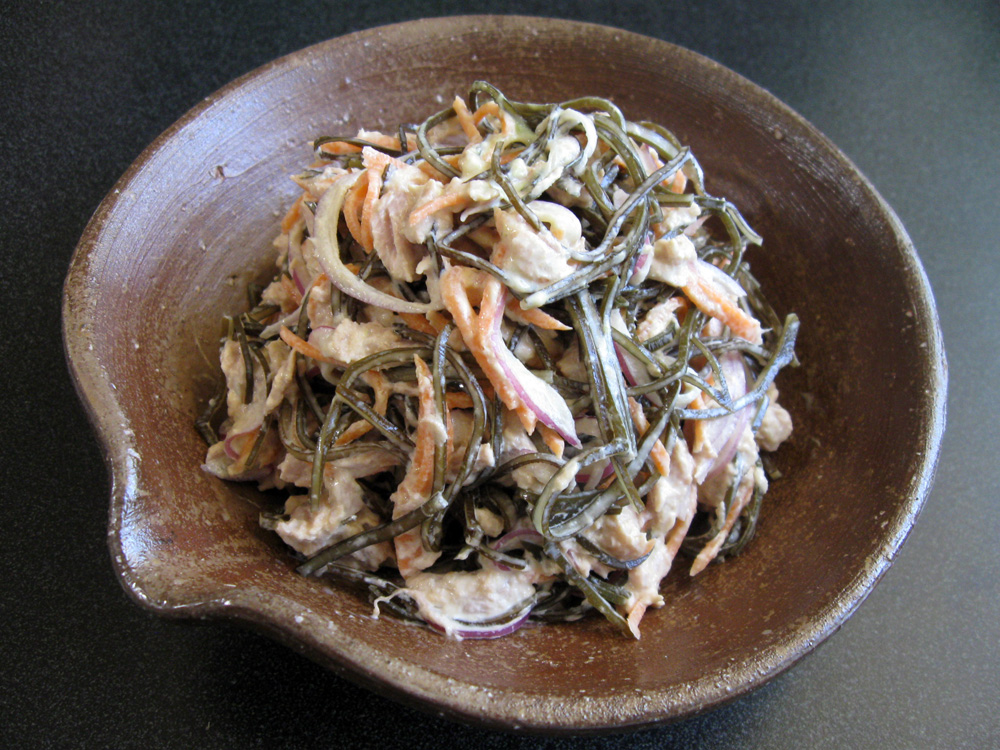
I want to encourage people who are not familiar with sea vegetables to try them. Some types of sea vegetables, that I am trying not to call ‘seaweeds’, have slimy texture and fishy smell. I understand it might be challenging for some people to eat them. I think ‘Kombu’ (kelp) is easier to try. Dried …
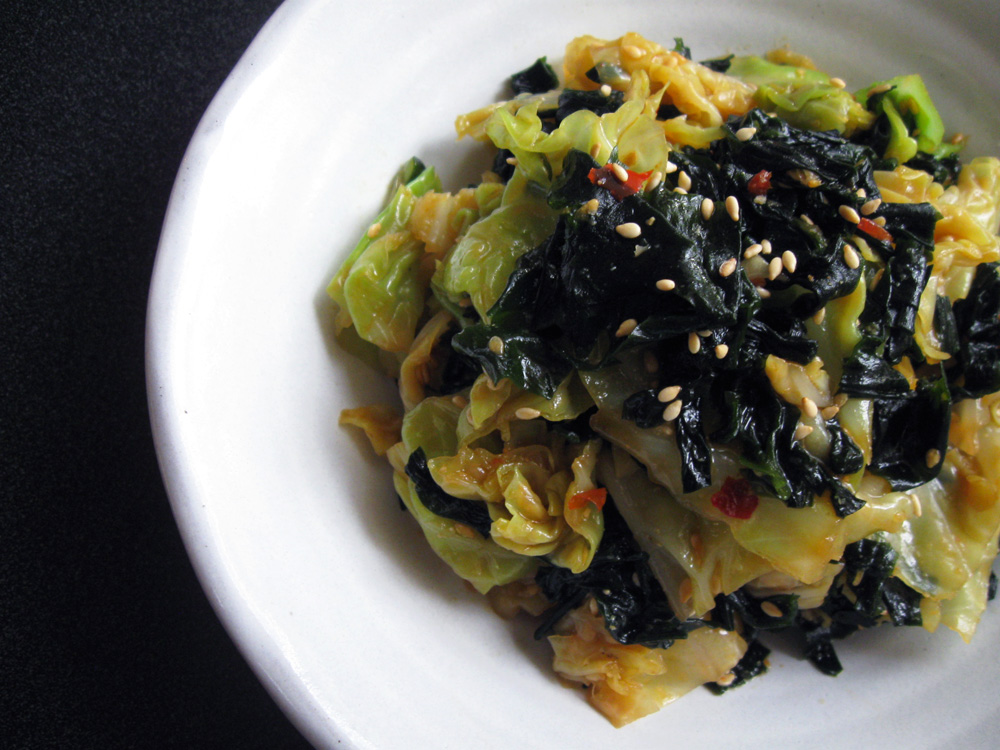
One of the most popular recipes on my website is ‘Goma-ae’, the dish of vegetables mixed with the ‘Goma-ae’ sauce. On the other day I tried to make ‘Goma-ae’ Cabbage, but it was not really good. I thought spiciness was needed and I added Toban Djan (Chili Bean Sauce). The flavour of it instantly brought …
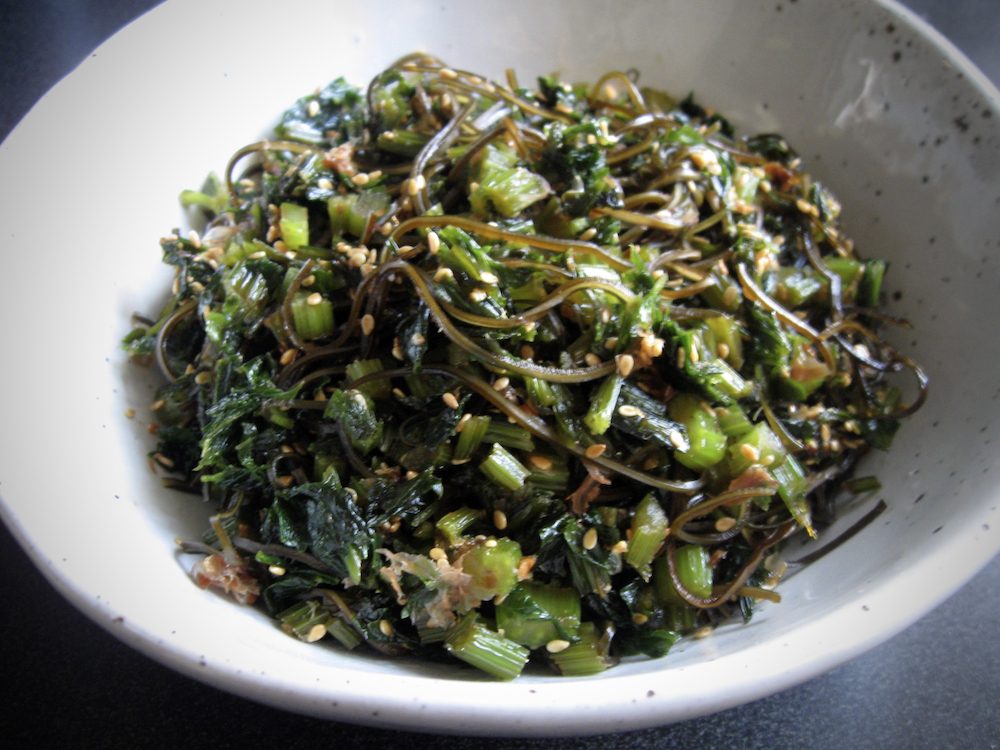
When you buy a bunch of celery, what do you use the leaves and thin stalks for? I have once introduced ‘Celery Leaves Tsukudani’ on this website. Here is another yummy ‘Tsukudani’ for you to try. Because I love this dish so much, I always buy celery by a large bunch with lots of leaves …
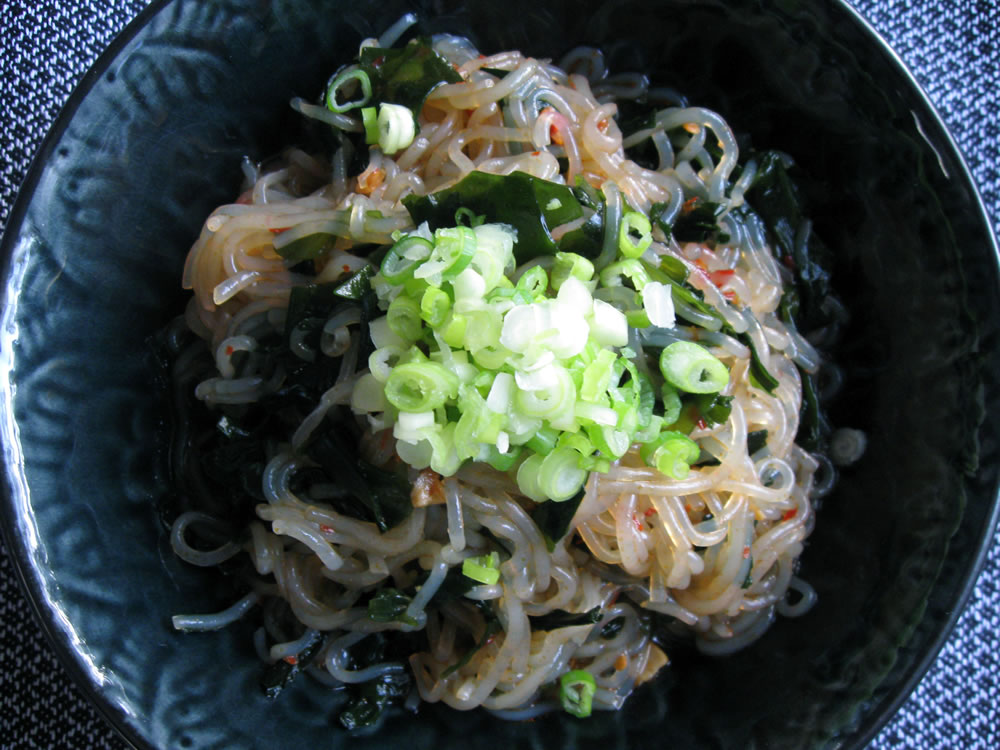
‘Shirataki’ are translucent and gelatinous noodles made from Konnyaku Potatoes (Konjac Yam or Devil’s Tongue Yam). Largely composed of water and dietary fibre, they are very low in calories. Slightly coloured type is called ‘Itokonnyaku’. They are getting popular as a healthy gluten & wheat free pasta alternative. I love it especially with Ponzu, a …

One of Japanese iconic dishes of Spinach is ‘Ohitashi’, marinated in dashi-base sauce. I particularly like Wasabi flavoured ‘Ohitashi’. If you don’t like Wasabi, forget this dish. My daughter enjoys most of the food on this planet, but Wasabi is one of the few things that she doesn’t enjoy. I usually stock a bottle of …
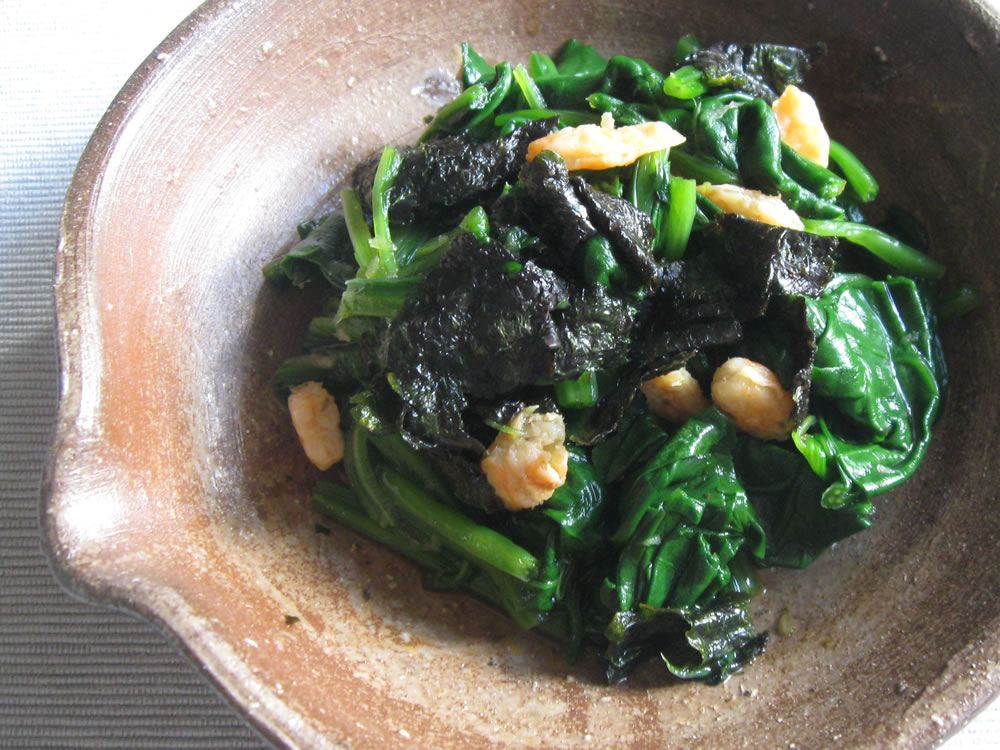
There are two very popular Japanese dishes of Spinach. ‘Goma-ae’ is probably the most popular one, and the other one is ‘Ohitashi’, marinated in dashi-base sauce. Many people enjoy it with ‘Katsuobushi’ as a topping. I like it without ‘Katsuobushi’. I often mix Wakame seaweed with Spinach but Toasted Nori is also very nice. Try …
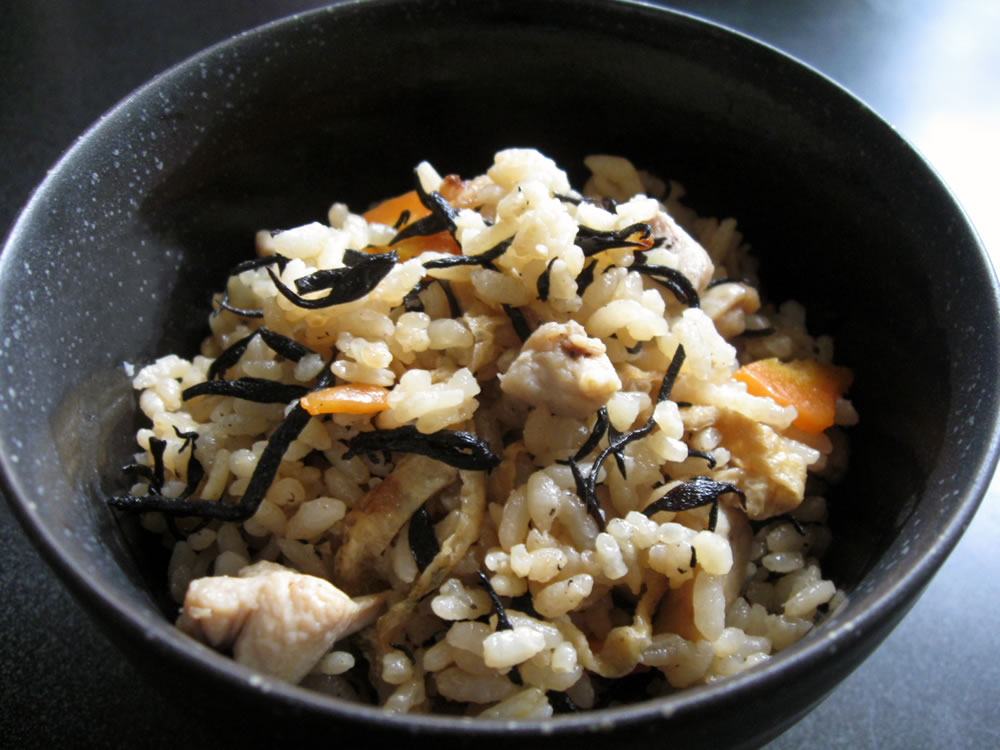
‘Hijiki’ is a dark brownish coloured sea vegetable and it has been a part of the Japanese diet for centuries. Hijiki is rich in dietary fibre and minerals such as calcium, iron and magnesium. There is a health concern about the level of inorganic arsenic in Hijiki and some say it is toxic. I have …












